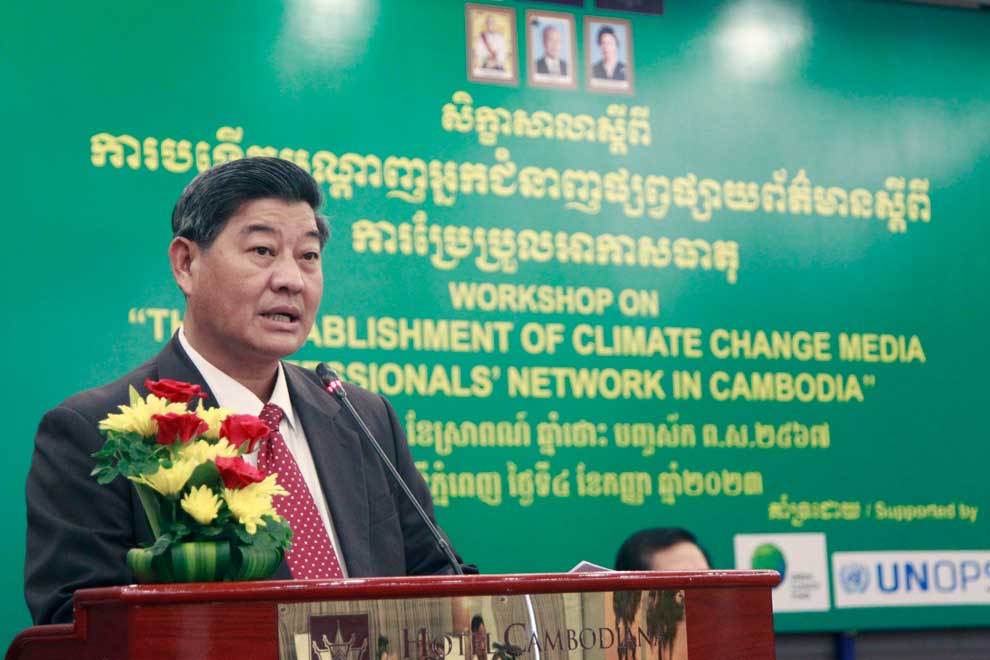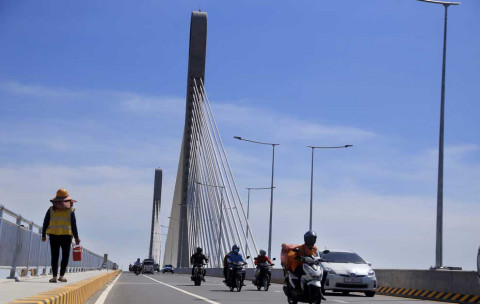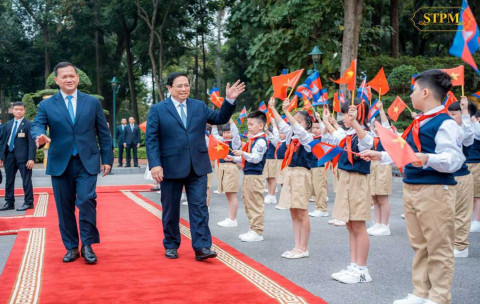
Minister Eang Sophalleth outlines Cambodia’s climate change efforts at COP28 in Dubai. SOPHALLETH VIA X
Cambodia urged collaboration for effective climate resilience, as Minister of Environment Eang Sophalleth reiterated the nation’s commitment to addressing climate change at the Conference of the Parties of the UNFCCC (COP28) in Dubai.
Despite being a low emitter of CO2, the Kingdom is dedicated to playing a pivotal role in global efforts, acknowledging its vulnerability to climate change.
“Cambodia, like other nations, has made progress since the Paris Agreement. However, emissions are still too high to prevent temperatures from exceeding the threshold of 1.5 degrees Celsius,” he said.
Sophalleth stressed that a $100 billion yearly commitment should be a top priority for addressing the crisis. This includes increasing mitigation ambition, accelerating adaptive actions and giving serious consideration to loss and damage.
He affirmed the nation’s commitment to addressing the crisis. With a 62 per cent renewable energy capacity, he noted, Cambodia has cancelled a 700MW coal power project and developed regional power grids for improved low-carbon energy distribution, exporting clean energy to Singapore.
The minister said the country aims to raise renewable energy share to 70 per cent by 2030 and reduce electricity consumption by 19 per cent. Cambodia remains committed to avoiding hydropower dams along the Mekong River.
Ministry secretary of state Sam Inn noted the need for global participation in addressing the climate crisis, saying Cambodia has made significant contributions to these efforts.
“The Cambodian government has created 73 protection zones, covering 41 per cent of the country, to safeguard forests, crucial for absorbing CO2. Our commitment extends to clean energy, reducing coal and plastic usage,” he said.
Inn mentioned efforts in climate education and training for climate resilience, including guidance for farmers on agricultural adaptation.
Heng Kimhong, head of research and advocacy for the Cambodian Youth Network, praised the government’s renewed commitment at COP28 – held in the commercial hub of the United Arab Emirates through December 12 – especially the cancellation of the coal power project.
However, he criticised hydropower, advocating for wind and solar energy in priority areas, while expressing concerns about the impact of hydropower on biodiversity.
“To avert a climate crisis, Cambodia must enhance forest protection. Increased commitment, collaboration with partners and stronger legal measures against resource destruction are also vital,” he said.
Kimhong added that to create additional forest cover and combat climate change, the country must take actions against forest crime.























